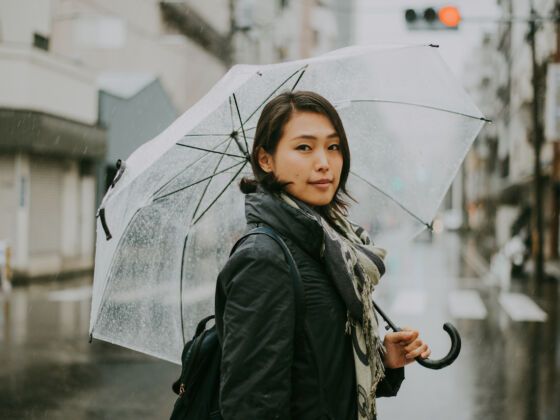I get asked about Japan all the time. I’m far from an expert on the culture, but I spent two years living there, working two different jobs, getting to know two large Japanese cities. Whenever my experiences come up in conversations with travelers, I don’t tend to recall the common traveler’s experiences like my trip to Mt. Fuji, or my quest to chase the cherry blossom bloom across the Kansai region. Though I enjoyed these adventures, my time in Japan was shaped largely by day-to-day life in Higashi-Hiroshima and Kagoshima — finding new things to eat, walking around unfamiliar back streets, learning the language, and just getting by.


Japan’s not very “touristy” in the first place, but even if it were, I wouldn’t regret not visiting the major sites. It took me almost two months before I felt like catching the 35-minute train into downtown Hiroshima. Part of the reason I waited so long was to be more comfortable in my apartment and my school, and to take advantage of the opportunities to just explore where I lived during my first days in Japan.
For me, slow travel is the way to go: finding a stable place you can call home abroad, and fanning out from there. But I also strongly advocate no travel when it comes to living in another country.
It may sound contradictory, but the experiences that have shaped me most in my travels don’t come from paying for organized tours to places everyone with a few dollars can go. Rather, I learned and felt so much just by trying to live a normal life in a new country. No crazy adventures. No waking up to catch the sunrise over the beach.
In Japan, that meant learning how to ask for my bento box to be heated up at the 7-11. Finding new places to run around my city. Observing Japanese people in the classroom, on the street, in restaurants, and going to work. For me it was about discovering a new way of life.
Getting to know your community
I don’t understand how tourists can complete a trip in a week or less. I was sick my first few days in Peru; if I had been restricted by an outgoing flight, I might never have had the time to even get out of bed. Slow travel allows us to discover a culture more deeply than a short visit would. I was reminded of this recently as I showed a few newbies around Arequipa, and pointed out what each shop on Calle Jerusalen contained: the best chocolate, my blind masseuse, my favorite vegetarian lunch.
In addition to the human angle, becoming part of a community over months and years allows travelers to see a foreign culture in a new light. How do people dress? How do they behave in public? Do they generally enjoy the same meals as I do?
Only by sticking to a routine was I able to gradually absorb what I observed and eventually incorporate these traits into my personality. To this day, I bow out of habit when meeting someone new, and speak in a mixture of New Zealand English and Canadian English with random Thai, Japanese, and Korean words tossed in.
Saving time and money
Staying put gives you options. Not only do you not have to shell out the $500 to hike the Inca Trail to Machu Picchu, but you save time by not riding for hours on planes, trains, and buses.
I had the opportunity to visit Puno on Lake Titicaca for a weekend, but facing a 6-hour bus trip in each direction for a short weekend, I passed and chose to use that time reinforcing the friendships I’d made in Arequipa and studying Peruvian history.
People
Can’t maintain stable relationships with people you meet abroad because they’re travelers just passing through? Unfamiliar with an area because you simply don’t spend enough time getting to know the ins and outs? There’s a simple solution: Stay put for a while.
My time in Korea would have been rather depressing if I hadn’t developed friendships with a variety of expats and locals who happened to be staying more than a year. I look fondly on memories of visiting the same restaurant three days a week in Kagoshima-Chuo Station, and Saijou Station prior to that; the waiters knew to bring my favorite dish of spicy chicken and chilled oolong. Even in my short time here in Arequipa, my face is becoming well known around the cafes and San Camillo market.
By creating such a degree of familiarity in your environment, you can make a home and a name for yourself abroad. You might still be vulnerable to befriending expats who bail on their contracts or stay less than a year, but the stability is there.